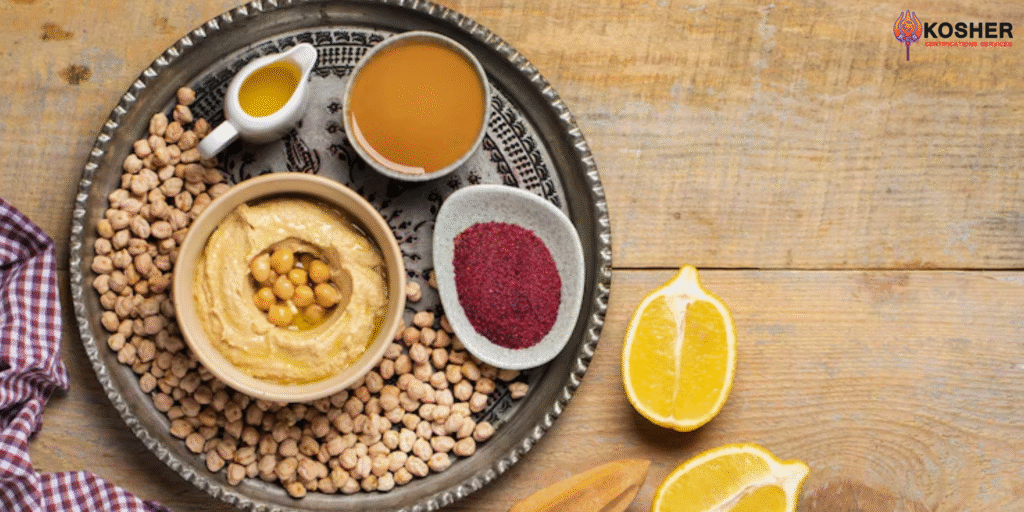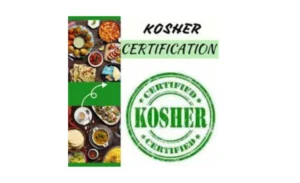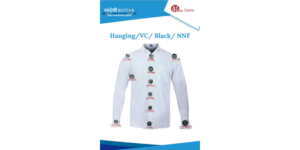Understanding Kosher Certification: A Guide for Consumers and Businesses

Kosher Certification
Have you ever seen a Kosher Certification mysterious symbols like a “U” in a circle or a “K” on food packaging and wondered what they mean? These are kosher certification marks—labels that hold deep significance in both religious and commercial contexts. Whether you’re a curious shopper, a business owner, or someone interested in global food practices, this guide will help you understand what kosher certifications is and why it matters more than you might think.
What Is Kosher Certification?
“Kosher” is a term derived from the Hebrew word kashér, which means “fit” or “proper.” In the context of food, it refers to anything that complies with Jewish dietary laws, also known as kashrut. These laws, rooted in the Torah and interpreted through centuries of Jewish tradition, outline what types of food are permissible and how they must be handled.
Key rules of kosher law include:
-
No mixing of meat and dairy in the same dish or meal.
-
Animals must meet specific criteria: Only certain types of land animals (those that chew the cud and have split hooves, like cows and sheep), birds, and fish (those with fins and scales) are permitted.
-
Ritual slaughter (Shechita) is required for meat to be considered kosher.
-
Strict separation of utensils and cooking equipment between meat and dairy products.
What Is Kosher Certification?
Kosher Certification is an official recognition from a kosher agency that a product or food establishment adheres to kosher dietary laws. Once certified, products can display the agency’s symbol (called a hechsher) on packaging. These symbols help observant consumers quickly identify suitable food items.
Prominent kosher certifications agencies include:
-
OU (Orthodox Union)
-
OK Kosher
-
Star-K
-
KOF-K
-
EarthKosher (especially for organic and natural products)
Each of these agencies has its own unique symbol and standards, though all follow the general principles of kosher law.
Why Kosher Certification Matters
1. Essential for Jewish Consumers
For Jewish individuals who follow dietary laws, Kosher Certification is not optional—it’s a necessity. It provides them with the assurance that the food has been produced in accordance with religious guidelines. Without a visible certification, many observant Jews will avoid purchasing a product, no matter how familiar it seems.
2. Broader Appeal
Kosher-certified products are not just for Jewish consumers. A wide variety of people prefer kosher products for different reasons:
-
Muslim consumers may accept kosher meat when halal options aren’t available.
-
Vegetarians and vegans use kosher labels to avoid animal by-products.
-
People with food allergies often rely on certification for clear labeling—especially regarding dairy and meat ingredients.
Kosher certifications is seen by many as a mark of cleanliness, quality, and transparency.
3. Market Expansion for Brands
For manufacturers and restaurants, Kosher Certification is a smart business move. It enables brands to:
-
Reach untapped markets in Jewish communities globally.
-
Enhance product credibility and quality perception.
-
Access supermarkets and distributors that prefer or require certified products.
The kosher food market is booming, valued at billions of dollars globally. For many companies, certification is a gateway to new revenue streams.
The Kosher Certification Process
While the specific steps can vary by agency, the process generally includes:
-
Application Submission: The manufacturer submits product details and ingredient lists.
-
Facility Audit: A rabbinic supervisor (mashgiach) inspects production facilities.
-
Guidance and Modifications: If needed, the company makes adjustments—such as cleaning procedures or equipment changes.
-
Approval and Labeling: Once everything meets the standards, certification is granted.
-
Ongoing Oversight: Regular inspections ensure continued compliance.
This thorough process reassures consumers and helps maintain the integrity of kosher certification.
Is Certification Worth It?
For many food producers, the answer is yes. While kosher certification involves some costs and procedural adjustments, the return on investment can be significant. With increasing consumer awareness and demand for transparent food labeling,certification continues to grow in importance—even outside traditional religious circles.
Conclusion
Kosher certification is more than a religious label—it’s a trusted symbol of quality, safety, and inclusivity. It serves observant Jewish consumers while also appealing to people with dietary restrictions, food sensitivities, and a preference for ethically produced goods. For businesses, it’s a powerful way to stand out in a competitive market and build customer trust.
Whether you’re shopping for your family or looking to expand your food brand, understanding certification is a smart and valuable step.

